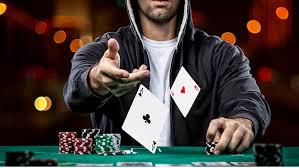
Poker is a game of skill, strategy, and psychology, making the role of a poker player more intricate than most people realize. A great poker player isn’t just someone who knows the rules; they are a master of reading opponents, managing risk, and adapting strategies. From high-stakes tournaments to friendly games, the ability to calculate odds, bluff effectively, and remain calm under pressure defines the best players.
Key Skills Every Poker Player Needs
The foundation of a successful poker player lies in their understanding of the game’s fundamentals, such as hand rankings, betting structures, and table etiquette. Beyond this, advanced skills like probability calculation and emotional intelligence come into play. Reading an opponent’s body language, spotting patterns in their betting, and controlling one’s own tells are critical. A sharp poker player also knows when to take calculated risks and when to fold, emphasizing the importance of discipline in every move.
The Mental Game of Poker
Poker is as much a mental battle as it is a strategic one. Players must remain focused and composed, even during extended games or when faced with losing streaks. The psychological aspect of poker—such as maintaining a poker face or executing a well-timed bluff—often determines the outcome of the game. Emotional control, patience, and the ability to think several steps ahead separate casual players from professionals.
Why Poker Players Are Modern Strategists
In today’s world, professional poker players are often regarded as strategists akin to chess masters. Many apply their poker skills to other fields, such as business negotiations or stock trading, due to the overlap in risk assessment and strategic decision-making. For aspiring players, mastering poker offers more than just the thrill of the game—it’s a pathway to developing life skills that transcend the felt table.


